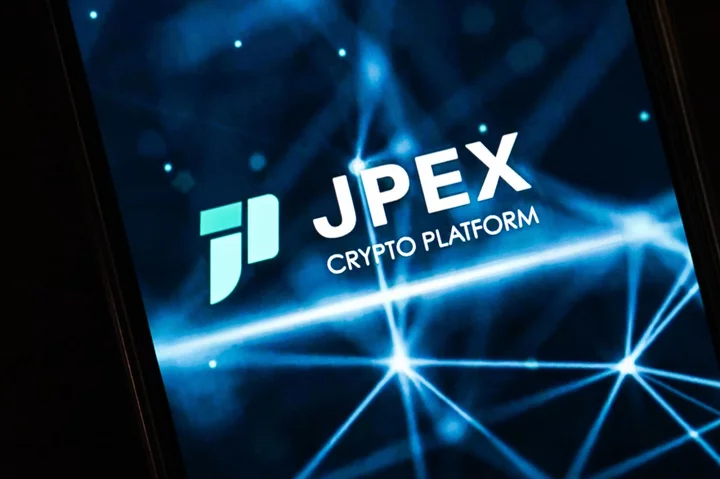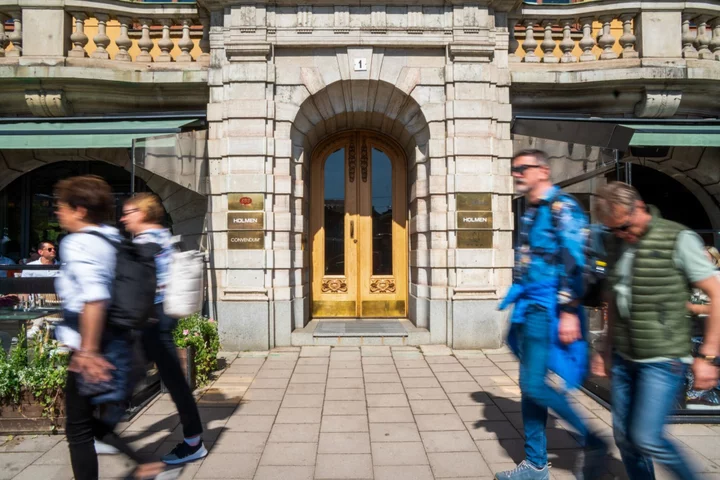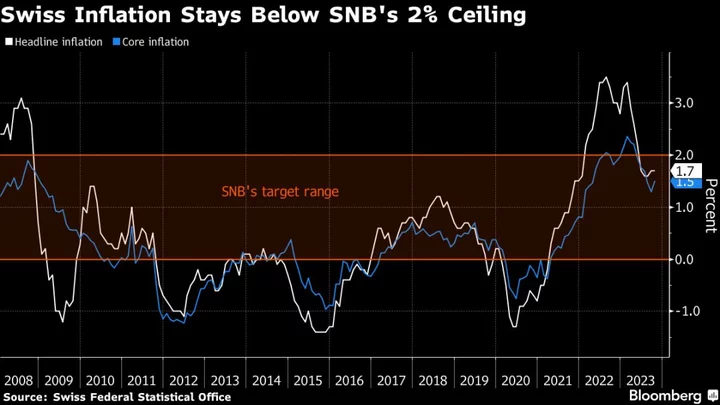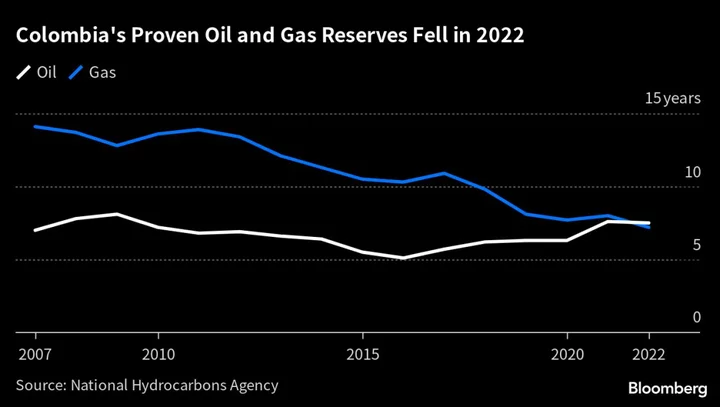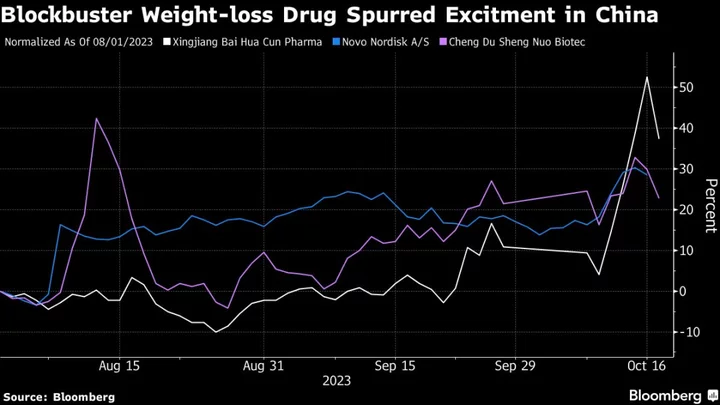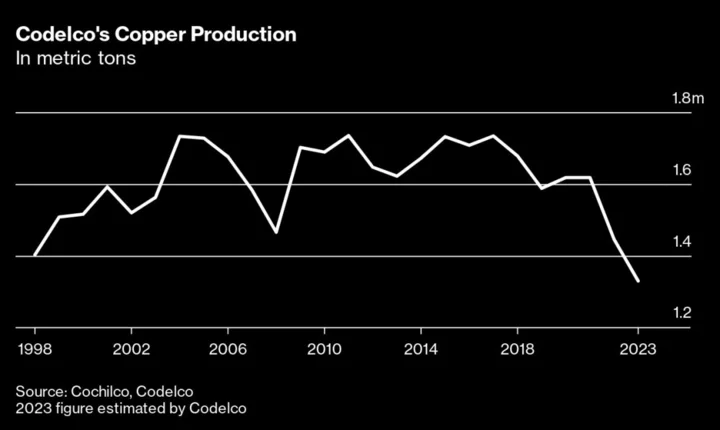The footage was beamed out to television viewers across Hong Kong early last week: a young man dressed in a black polo shirt, navy blazer and gray trousers being led out by police from an office tower in the Central business district in handcuffs in front of waiting photographers.
Joseph Lam, the Oxford-educated barrister-turned-social media influencer who’s amassed some 150,000 Instagram followers, was among the at least 11 people arrested as part of a sweeping investigation into JPEX, the unlicensed crypto platform Hong Kong police allege defrauded investors of HK$1.5 billion ($192 million).
Hong Kong’s muscular response was meant to demonstrate that authorities, who introduced a new regulatory regime for cryptocurrencies four months ago, will deal harshly with any wrongdoers. Police swooped in just days after the securities regulator publicly warned investors in mid-September that JPEX lacked a permit and that some users had been unable to withdraw funds. Telecom carriers were ordered to block its website and app locally.
But the event is also an uncomfortable reminder of the perils governments worldwide must navigate as they move to regulate an industry that’s been prone to scams, hacks and extreme volatility since its inception. And it’s provided fresh ammunition to those who argue that digital tokens should be kept out of reach for individual investors altogether.
“This unfortunately shows that allowing retail trading in this space which is known to be fraud-prone, when investor education is sorely lacking, is a mistake,” said Lily Fang, professor of finance and dean of research at INSEAD business school near Paris.
JPEX started operating long before Hong Kong adopted its new framework, which prohibits crypto firms without a license from marketing to the public. Before that, authorities let companies themselves decide whether they wanted to be regulated in what’s known as an “opt-in” regime. Only two crypto exchanges obtained licenses.
Singapore’s Marketing Ban
Hong Kong hasn’t gone as far in setting crypto guardrails as rival financial hub Singapore, which bars marketing to consumers even by licensed outfits. Both allow retail trading in the biggest tokens, like Bitcoin and Ether.
JPEX offers an illustration of how easily small-time savers can be drawn in by ads offering eye-watering crypto returns — even when they defy logic. Starting in October 2021, the company took out billboards across Hong Kong’s subway system featuring local celebrities and touting yields of up to 19%. Even as other digital-asset outfits around the world that had promised such returns crashed last year, JPEX stuck to its guns.
Hong Kong’s Securities and Futures Commission started looking into the Dubai-based platform in March 2022. Four months later, it put JPEX on its an alert list where it names thousands of boiler-room operations and other suspected scams. JPEX stopped advertising in subway stations in June 2022, but it kept marketing through other channels and even stepped up promotions in the past few months, the regulator has said.
The SFC’s first alert didn’t stop thousands of people in Hong Kong from flocking to JPEX. After the regulator warned the public about the exchange on Sept. 13, almost 2,400 investors were left with money trapped as it made withdrawals effectively impossible.
‘I Knew the Risk’
On a Telegram forum with over 12,000 participants where JPEX customers discuss legal proceedings and possible ways to recover funds, several people have posted about being aware that it wasn’t licensed — but that the returns offered were just too good to pass up.
Keith, a 24-year-old IT specialist, said he saw JPEX’s ads and was drawn to its low trading fees and high yields. He had about HK$1.6 million on the platform, using it for day trading and collecting interest payments on crypto he deposited. When he noticed that the SFC had put the exchange on its alert list in July 2022, he still kept his funds on JPEX because it was still paying the interest until the regulator’s warning this month.
“I could have left the platform when I saw JPEX made the SFC alert list,” Keith said, declining to provide his full name because of the stigma associated with the exchange. “I chose to stay as I had no problem drawing out money throughout. I knew the risk.”
SFC Chief Executive Officer Julia Leung on Monday suggested the platform is “possibly a Ponzi scheme,” without identifying it by name. “I call on the public’s attention to be wary of these high-return traps,” she said at a press conference.
JPEX didn’t respond to an emailed request for comment. The exchange earlier adopted a combative stance, expressing “extreme disappointment” with the clampdown in one statement. The crypto watchdog in Dubai, where JPEX says it’s based, on Tuesday said the exchange isn’t registered or regulated there, adding that it may take unspecified enforcement actions against the firm.
Lam, the social-media influencer, has declined to comment on the case against him.
Hong Kong’s previous system left crypto companies to weigh the benefits of an official imprimatur against the added costs to maintain compliance. Then last year, just as digital-asset markets lurched through a series of scandals, the SFC ramped up preparations for a new framework where licenses would be obligatory.
For Chief Executive John Lee, embracing cryptocurrencies was a key part of efforts to restore Hong Kong’s image as a financial center following often-violent protests in 2019 and years of restrictive Covid policies after that. It was also a way to push back against the narrative that the territory no longer enjoyed any autonomy from China, which banned all crypto trading in 2021. The new system took effect June 1.
Singapore central bank chief Ravi Menon has repeatedly defended the city-state’s retail marketing ban as a necessary safeguard to protect small-time savers from suffering financially devastating losses. The government even went so far as to order all Bitcoin ATMs removed in early 2022. Singapore hasn’t experienced any large-scale crypto scams since a framework for cryptocurrencies was proposed a year ago.
That’s not to say Hong Kong’s crypto opening comes without caveats. Besides limiting trading to the biggest tokens, other safeguards include knowledge tests and limits on exposure. And the SFC made it clear that once the new regime started on June 1, any exchange marketing to Hong Kong investors without a permit would be breaking the law.
“We will be closely monitoring,” Keith Choy, a senior official at the regulator, said at a briefing in late May.
Under the current framework, the SFC was given a mandate to investigate any marketing by unlicensed crypto firms, which it did with JPEX before referring the case to police, Leung said Monday.
Hong Kong’s response shows regulators are successfully threading the needle of clamping down on wrongdoing without resorting to heavy-handed policies like banning all retail marketing, said Vince Turcotte, a consultant at Cognitive GRC, which advises firms applying for crypto licenses.
“I don’t think that the answer to such incidences is to ban promotion,” he said. “I think that the answer is really to go after bad actors who violate existing rules, make false claims and misrepresent, irrespective of the asset class.”
Keith, the JPEX user, reckons he got lucky to an extent. He said he withdrew roughly half of his money from the exchange shortly before the Sept. 13 warning from the SFC to free up cash for a home down payment. The rest is stuck on the platform and Keith said he has little hope of ever recovering it. He’s also stopped receiving interest.
He said he is experienced in crypto and acknowledges that he’s got himself to blame for sticking with JPEX even as the red flags piled up. Hong Kong authorities are left to ponder if the risk of similar blowups ensnaring hordes of unsuspecting savers — regardless of whether they should have seen it coming — warrants taking a tougher stance on an industry they’re leaning on to help reinvent the city.

